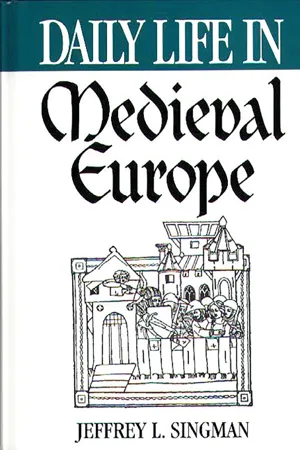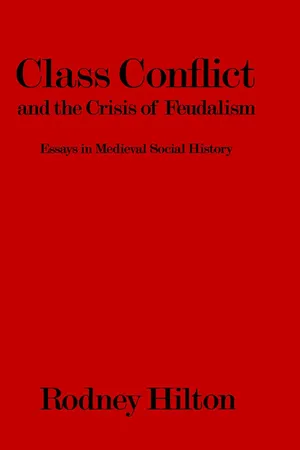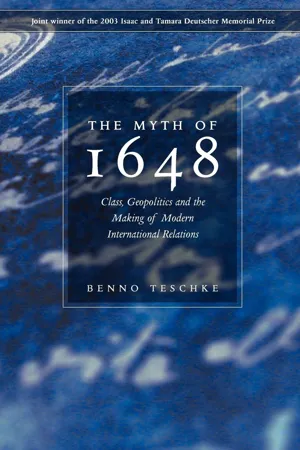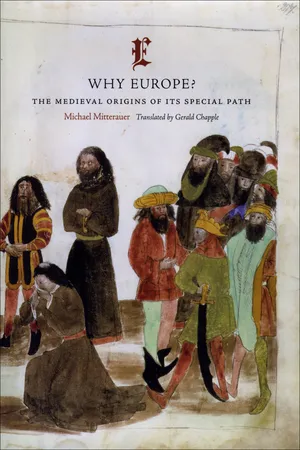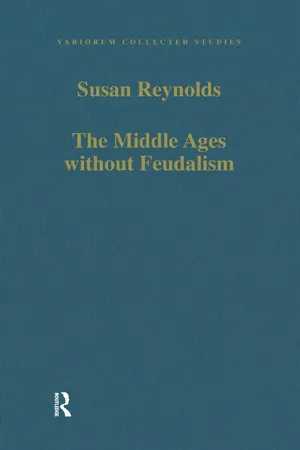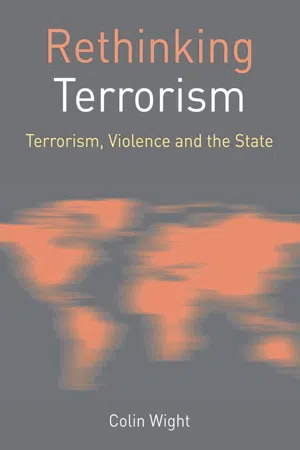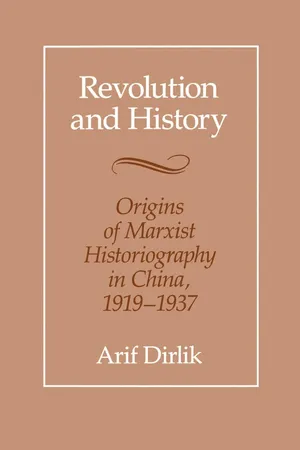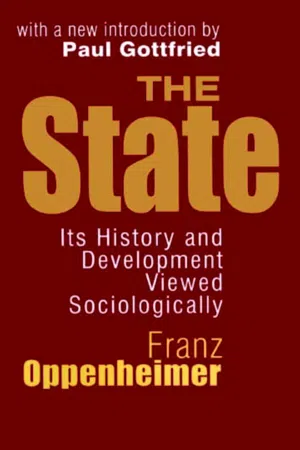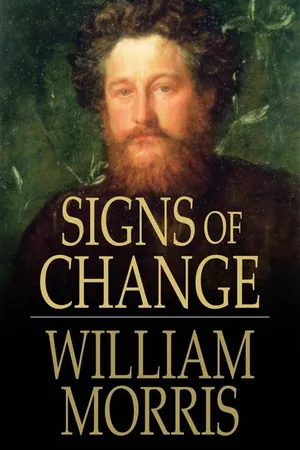History
Feudal Government
Feudal government was a political system prevalent in medieval Europe, characterized by a hierarchical structure of power and land ownership. It was based on the exchange of land for military service and loyalty, with kings granting fiefs to nobles in exchange for their support and protection. This system led to decentralized authority and the emergence of local lords as powerful figures within their territories.
Written by Perlego with AI-assistance
Related key terms
1 of 5
10 Key excerpts on "Feudal Government"
- eBook - PDF
- Jeffrey L. Forgeng(Author)
- 1999(Publication Date)
- Greenwood(Publisher)
Feudalism evolved as a hierarchical system of personal relationships in which land and military Medieval Society 5 • An aristocratic man and woman playing chess. He wears a sleeveless surcoat and highly decorated shoes and has his hood wrapped around his head as a hat; she has a loose overtunic. German, early fourteenth century. [Gay, after Manesse Manuscript] power were the principal commodities exchanged. An individual with military power to offer gave his services to a feudal lord. The lord in turn secured his subordinate in the possession of the land that financed his military service. The feudal subordinate was called a vassal, and the vassal's land was termed a fee or fief (feudum in Latin, which is the source of the term feudal). A vassal who held a great deal of land might in turn grant fiefs to his own feudal tenants, who helped him fulfill his military obligations to his lord. Long-term stability was provided by the principle of heredity, as the feudal relationships between individuals were ex- tended to apply to their heirs. Feudal landholding lay somewhere between modern tenancy and ownership. The holder was considered the tenant rather than the owner of the holding. In principle, the lord might grant the fief at his will when- ever it became empty. In practice, fiefs were treated as permanent and hereditary property, granted by the lord to the heir when the holder died, and only falling empty if there was no heir, or if the holder was forcefully dispossessed. Tenants regularly sold their tenancies, although the lord's permission had to be sought for the transaction. Heritability was advantageous for both lord and vassal, allowing the vassal to pass the property on to his heirs, and providing stability for the lord. 6 Daily Life in Medieval Europe The feudal transaction was more than a bartering of land for military service. The feudal tenant held some measure of legal jurisdiction and political authority over his holding and subtenants. - eBook - PDF
Class Conflict and the Crisis of Feudalism
Essays in Medieval Social History
- Rodney Hilton(Author)
- 1985(Publication Date)
- Hambledon Continuum(Publisher)
The social and economic order of medieval Europe is sufficiently distinct and recognisable, with its own laws of motion, to require some term by which it can be distinguished from preceding and following social formations. If we do not use the word 'feudalism' we would have to invent one, and it would have to encompass within its definition both feodalite and seigneurie. The feudal organisation which is implied by the word feodalite had emerged by the eleventh century in France and England in different ways but with similar contours. Its coherence must not be exaggerated. Even in England, where the feudal institutions of the new aristocracy were formed quickly as a result of the conquest of 1066, and much less in France, there was no perfect, completed hierarchy of mutual obligation between barons and fief-holding vassals owing military service and expecting protection. One should imagine, especially in France, a series of untidy regional groupings dominated by one or two great land-owning families who derived most of their income from the rents and services of peasants. They also held jurisdictional power, not only over 228 Class Conflict and the Crisis of Feudalism their peasants but over their free vassals—landowners, some of noble pretensions, whose male members were either warriors or destined for office in the Church. By this time personal relationships between the great lords and their vassals were assuming tenurial form, the rendering of homage and fealty and the promise of military service, financial aid and counsel in return for fiefs in land. In fact the mobilisation of military service on this basis, once presented as the essence of feudalism, was in practice by no means general. By the twelfth century, if not earlier, all the best wars were fought for pay in cash and the hope of booty. The persisting strength of 'feudalism' in the narrower sense of relations within the landowning class, was as much ideological as it was tenurial or jurisdictional. - eBook - ePub
The Myth of 1648
Class, Geopolitics, and the Making of Modern International Relations
- Benno Teschke(Author)
- 2020(Publication Date)
- Verso(Publisher)
One way to approach the controversies surrounding feudalism is by theorizing the relation between ‘the economic’ and ‘the political’ in medieval society. A dominant line of thinking running through the literature – essentially inspired by the work of Max Weber and Otto Hintze – identifies feudalism as a political phenomenon (Weber 1968a: 255–66, 1070–110, esp. 1090–92; Hintze 1968). Especially Weber, analogously to the significance Marx attributed to possessing the means of production, elaborates on the political significance of possessing the means of administration for the decentralized patrimonial state:All states may be classified according to whether they rest on the principle that the staff of men themselves own the administrative means, or whether the staff is ‘separated’ from these means of administration…. These political associations in which the material means of administration are autonomously controlled, wholly or partly, by the dependent administrative staff may be called associations organized in ‘estates’. The vassal in the feudal association, for instance, paid out of his own pocket for the administration and judicature of the district enfeoffed to him. He supplied his own equipment and provisions for war, and his subvassals did likewise. Of course, this had consequences for the lord’s position of power, which only rested upon a relation of personal faith and upon the fact that the legitimacy of his possession of the fief and the social honour of the vassal were derived from the overlord. (Weber 1946: 81)As a specific system of government or a hierarchical-military relationship between bearers of political power, feudalism falls within the confines of political science, constitutional history, or the sociology of types of domination. ‘[Occidental] feudalism [Lehensfeudalität] is a marginal case of patrimonialism that tends toward stereotyped and fixed relationships between lord and vassal’ (Weber 1968a: 1070; see also Axtmann 1990: 296–8).2 For all their erudition and meticulous conceptual differentiation, these accounts tend to abstract from the agrarian social basis of feudal political power. While Weber was, of course, not blind to the economic implications of feudalism,3 - eBook - PDF
Why Europe?
The Medieval Origins of Its Special Path
- Michael Mitterauer, Gerald Chapple(Authors)
- 2010(Publication Date)
- University of Chicago Press(Publisher)
In any systematic treatment of the feudal system, a physical component and a personal one are usually distinguished. The physical side con-cerns the fiefdom—the fief ( Lehen , Latin beneficiium , feudum )—which gave us the general term “feudalism” for political systems in which military or civil officials or both were granted property. The personal component involved the social relationship between the liege lord and the feudal servant (called a vassus or vasallus ); for the latter, the rela-tionship was called vassalage. Some of the distinctive features of these two components in Europe can be understood through their contexts. A cross-cultural comparison has shown that the bipartite manorial organization underpinning the Carolingian feudal system was a unique agrarian type that can only be fully grasped by taking into account the agrarian revolution of the early Middle Ages. The escalation of the agrarian economy allowed for an expansion of lordship. This holds true both for royal property, pro-vided to ecclesiastical and temporal nobles alike, and for those nobles and clergy who possessed manors and would in turn grant fiefs to vas-sals. The unique bipartite manorial system and the way it was farmed tended to create hubs of local and regional lordship. Lordship in fief-doms was, in other words, strongly decentralized—this would have an effect on the Estates later on. It has been demonstrated above that a peculiarity of the agrarian economy was the link between farming and raising livestock; cross-cultural comparisons have shown that there was nothing similar anywhere else, particularly as far as horses were concerned. The agricultural use of horses provided an economic base for western feudal knights to equip themselves; there was a buildup of a heavily armored cavalry at the beginning of the European feudal system. - eBook - ePub
The Middle Ages without Feudalism
Essays in Criticism and Comparison on the Medieval West
- Susan Reynolds(Author)
- 2018(Publication Date)
- Routledge(Publisher)
23 Since historians do not agree about the phenomena they want to distinguish, or where to draw the line between them, none of these attempts to distinguish the words has eliminated misunderstandings and confusions. None of the terminological distinctions has shaken the old framework in which the interpersonal relations of vassalage and property rights derived from conditional grants are seen as distinguishing features of the society of the European Middle Ages. The framework bulges but for many it still seems strong enough to hold the essential features of medieval society.Most European historians of medieval Europe during the twentieth century concentrated in practice on the history of their own countries, interpreting the evidence of land-holding and political relations within the framework of feudal law and society embodied in something like the Bloch/Weber definition. Some have seen the feudalism of their own area as the most typical or complete, some have stressed its exceptional qualities, but relatively few have been ready to question whether the various phenomena they describe were all part of the same thing – whatever model or type of feudalism they accept or imply. As a result, where evidence of some supposedly feudal phenomenon in their own country is lacking they can either interpolate it from elsewhere or explain its absence as an exception that need not affect the general picture. In England and France historians have used different bits of the Ganshof and Bloch/Weber types to describe, and by implication to explain, quite different situations. Feudalism in England is characterized by a hierarchy of property (though the word tenure, which sounds more feudal, is generally preferred to “property”) and of military service owed from “knights’ fees” – what Bloch called “service tenements.” In England, however, these Blochian characteristics are associated with a strong central power that made noble jurisdiction over peasants relatively unimportant. Feudalism in France, on the other hand, as in Germany, has been seen in terms of fragmented power, with a weak monarchy and a nobility holding “immunities” of jurisdiction over their tenants, while noble obligations to military service have had, in the absence of much evidence, to be assumed. - eBook - PDF
Rethinking Terrorism
Terrorism, Violence and the State
- Colin Wight(Author)
- 2017(Publication Date)
- Red Globe Press(Publisher)
An important aspect of political control in this era was a close set of personal relationships that served to bind political configura-tions together, but which also ensured that the resort to violence was always personally mediated through the ruler. Likewise, the dignitaries that ran the kingdom at the provincial and local levels were composed of privileged families that had close, often family, ties to the ruler. This made the feudal state a collection of separate political entities that, in theory, owed allegiance to a common monarch. Thus, political organization in the feudal era was dependent on the relationship between the ruler and his/her warriors, as indeed was the access to formalized political violence. These relationships were largely forged through the deployment of violence, and maintained through the use of violence. Thus these relationships were, in effect, little more than a de facto military organization, which, in virtue of its capacity to impose its will, exercised political control through the use, or threat of, violence. Thus in a feudal system, war, violence and political arrangements were mutually implicated (Poggi, 1990: 35). In this period, however, there were no standing military organi-zations, and when armies formed they were constituted for the sole purpose, and duration, of dealing with a specific issue. A key aspect of this political control was the manner in which the ruler would subcontract control over particular territorial domains to other nobles and lesser dignitaries, often called vassals. These vassals formed an elite group within the social and political order Owning Violence: A History of the Modern Nation State 25 and formed close bonds with the ruler. - eBook - PDF
Islam Under the Crusaders
Colonial Survival in the Thirteenth-Century Kingdom of Valencia
- Robert Ignatius Burns(Author)
- 2015(Publication Date)
- Princeton University Press(Publisher)
This dialogue between sociopolitical forms characterized a number of contemporary king- doms. King James's realm differed from these not only in the inten- sity of its legal renaissance, but in the nature of its feudal forms and in the ambient nonfeudal society modifying them. THE MUSLIM AS VASSAL The classic textbook feudalism of northern Europe was organized around serfdom on communal manorial estates and rooted in an immemorial array of military magnates, interlinked with their vas- sals by a psychology of personal loyalties and possessed of a range of governmental powers over their territories—a system recendy dis- 273 THE POLITICAL-MILITARY MILIEU turbed by the intrusion of burghers and by a series of ambitious kings. The textbook picture, though too neat to fit the complexities of life, is not unjust as a general or introductory description. This arrangement did not prevail in the Arago-Catalan kingdom. An approximation might have been found in the rural hinterland, espe- cially in the more backward province of Aragon proper—and by reflection later in the northwest uplands of Valencia where Aragonese settlement waxed strongest. A class of landed magnates and lords was indeed abroad, preoccupied with military adventure and land, owing armed service to the crown, high-handed, family-proud, conserva- tively clinging to special interests, defending themselves readily by rebellion, indignant against taxation or interfering kings, and inclin- ing to demand onerous burdens from their tenants. - eBook - ePub
Revolution and History
Origins of Marxist Historiography in China, 1919-1937
- Arif Dirlik(Author)
- 2023(Publication Date)
- University of California Press(Publisher)
It is worth reiterating in this context, however, that those who claimed China to be feudal ignored all aspects of the social structure but the question of exploitation in an agrarian economy, which obviously does not suffice to distinguish social formations since through most of the historical period agriculture has provided the basis of economic existence and the degree and nature of exploitation has depended on a number of contingent factors that were not necessarily products of agriculture itself. 92 “There is nothing in petty peasant production,” Leff has noted, “which of itself gives rise to the property relations of serf and lord.” 93 What distinguished feudal society from others founded upon an agrarian economy was the unique social organization that tied the peasant to the land as a serf dependent on the lord. The legal-political system of feudalism expressed and enforced this relationship. To reject all these relations as mere aspects of the superstructure resulted in an obscurantism that ruled out all change in Chinese history and eliminated all distinctions between Chinese society and other agrarian societies. Feudalism, Commerce, and Social Change The debate over feudal society involved two interrelated problems with theoretical implications: What was feudalism, and what were the dynamics of the transition from feudalism to capitalism? The protagonists in the debate accepted the validity of Marxist propositions with regard to these questions; the complexity of those propositions, on the other hand, afforded them some choice in the priority they assigned to the characteristics Marx and later Marxists had associated with feudal society and its evolution into capitalism. The definition of feudalism was crucial to the whole debate because on it hinged the question of the placement of the feudal stage in Chinese history and, therefore, the question of China’s historical development as a whole - eBook - ePub
The State
Its History and Development Viewed Sociologically
- Franz Oppenheimer(Author)
- 2018(Publication Date)
- Routledge(Publisher)
CHAPTER VThe Development of the Feudal State
(A) THE GENESIS OF LANDED PROPERTY
WE now return, as stated above, to that point where the primitive feudal State gave rise to the city State as an offshoot, to follow the upward growth of the main branch. As the destiny of the city State was determined by the agglomeration of that form of wealth about which the State swung in its orbit, so the fate of the territorial State is conditioned by that agglomeration of wealth which in turn Controls its orbit, the ownership of landed property.In the preceding, we followed the economic differentiation in the case of the shepherd tribes, and showed that even here the law of the agglomeration about existing nuclei of wealth begins to assert its efficacy, as soon as the political means comes into play, be it in the form of wars for booty or still more in the form of slavery. We saw that the tribe had differentiated nobles and common freemen, beneath whom slaves, being without any political rights, are subordinated as a third class. This differentiation of wealth is introduced into the primitive state, and sharpens very markedly the contrast of social rank. It becomes still more accentuated by settlement, whereby private ownership in lands is created. Doubtless there existed even at the time when the primitive feudal state came into being, great differences in the amount of lands possessed by individuals, especially if within the tribe of herdsmen the separation had been strongly marked between the prince-like owners of large herds and many slaves, and the poorer common freemen. These princes occupy more land than do the small freemen.At first, this happens quite harmlessly, and without a trace of any consciousness of the fact that extended possession of land will become the means of a considerable increase of social power and of wealth. Of this, there is at this time no question, since at this stage the common freemen would have been powerful enough to prevent the formation of extended landed estates had they known that it would eventually do them harm. But no one could have foreseen this possibility. Lands, in the condition in which we are observing them, have no value. For that reason the object and the spoils of the contest were not the possession of lands, but of the Und and its peasants, the latter being bound to the soil (glebœ adscripti - eBook - PDF
- (Author)
- 2009(Publication Date)
- The Floating Press(Publisher)
The complete feudalism of the fourteenth century fell, as systems always fall, by its own corruption, and by 82 development of the innate seeds of change, some of which indeed had lain asleep during centuries, to wake up into activity long after the events which had created them were forgotten. The feudal system was naturally one of open war; and the alliances, marriages, and other dealings, family with family, made by the king and potentates, were always leading them into war by giving them legal claims, or at least claims that could be legally pleaded, to the domains of other lords, who took advantage of their being on the spot, of their strength in men or money, or their popularity with the Baronage, to give immediate effect to THEIR claims. Such a war was that by which Edward I. drew on England the enmity of the Scotch; and such again was the great war which Edward III. entered into with France. You must not suppose that there was anything in this war of a national, far less of a race, character. The last series of wars before this time I am now speaking of, in which race feelings counted for much, was the Crusades. This French war, I say, was neither national, racial, or tribal; it was the private business of a lord of the manor, claiming what he considered his legal rights of another lord, who had, as he thought, usurped them; and this claim his loyal feudatories were bound to take up for him; loyalty to a feudal superior, not patriotism to a country, was the 83 virtue which Edward III.'s soldiers had to offer, if they had any call to be virtuous in that respect. This war once started was hard to drop, partly because of the success that Edward had in it, falling as he did on France with the force of a country so much more homogeneous than it; and no doubt it was a war very disastrous to both countries, and so may be reckoned as amongst the causes which broke up the feudal system. But the real causes of that break-up lay much deeper than that.
Index pages curate the most relevant extracts from our library of academic textbooks. They’ve been created using an in-house natural language model (NLM), each adding context and meaning to key research topics.
